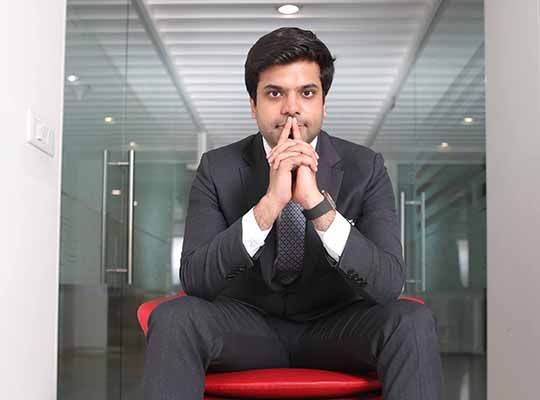When the Covid-19 pandemic struck last year, travel plans had to be cancelled end masse, hitting the flourishing travel industry the hardest. According to a McKinsey report, tourism made up 10% of the global GDP in 2019 and was worth almost $9 trillion. With vaccines making an appearance, the flickering flame of travel remains, albeit dominated by health concerns and safety measures. In a survey conducted by Schengen Visa Info, 95% of the respondents said they would consider travelling as soon as global travel restrictions are lifted, with 87% claiming that they desperately needed to take a trip outside their country of esidence.
The travel industry is trying to inspire customer confidence while finding solutions to safeguard the interests of guests and employees. Changing mindsets and interests are fueling the growth of staycations and revenge travel and in fact, vaccine tours. Along with this change, the tourism industry is tapping into the shift towards ‘bleisure’ – a hybrid travel model that includes business and leisure travel.
Amidst the sweeping changes in travel, digital technologies are paving the way for a tech-driven and globally connected tourism business. From vaccine certificates and vaccine passports to e-visas, travel bubbles, digital keys, advanced facial recognition software and biometrics for airport check-ins, travel as we know has changed forever.
The tech revolution in the travel world is at once marvelous but also a threat to data privacy. As the world races to shift systems online, personal data is even more vulnerable. However, this calls for a technological advancement to go hand-in-hand with enhanced data privacy & protection measures along with strict data purging policies.
Enhanced Services for Traveller’s Convenience
Mobile Biometric Service is a prime example of a convenient new application procedure. Combining functionality with portability and ease, it enables customers to complete their biometrics and visa application process at the comfort of their respective homes or offices.
Primetime Submission is also a solution that aims at ease of application. A separate counter at the center accepts application during work hours to avoid the queues, which eliminates unnecessary waiting time and contact with other individuals while queueing up for application submission.
Blending Data Security with Customer Delight
Service providers in the travel space are taking several steps to ensure data protection and efficiency at the same time. Artificial Intelligence (AI) driven platforms are increasingly being used at visa and passport application centres. With the help of AI algorithms, travel documents such as passports and e-residency cards recognition are being used to identify a blocked or blacklisted traveller as part of security clearance.
The industry is adopting an AI-first approach, banking on “relevance” becoming the winning factor. AI in travel and tourism is being used to predict travel choices, personalize services, complete bookings and manage in-trip and post-trip needs.
The chat bots are the most used medium that interacts with the traveller to understand the needs and help the person in getting the most relevant and up to date information. Bots using Natural Language Processing (NLP) can be deployed to accomplish more complex personalization using AI for context.
Voice-based assistants, chatbots, and smartbots embedded with machine learning (ML) technology also play a major role in the industry. Chatbots are solving various problems in the travel sector and brands are adopting it fast for e.g., to provide a seamless customer service. Travel bots can solve queries, give suggestions, or initiate transactions. Towards ensuring a connected user experience, smartbots are being used to update travellers with timely information regarding their travel document status. Besides, smartbots offer a new degree of personalisation in terms of conversing with users and answering queries related to their individual requirements.
Electronic Visa Processing is yet another online service to ensure security and swift application processing, although whether to provide e-visas are the prerogative of concerned Ministry of External Affairs, Embassy or the Mission. In accordance with the visa policy of their respective country, this service can be applied online. The solution harnesses Optical Character Recognition (OCR) technology to enable error-free and faster application processing.
Towards authentication of travellers’ identity especially when crossing borders, identity management software infused with blockchain technology can aid in advanced biometric and fingerprint scanning in the visa process. Such software can transform various operational processes and enable movement of travellers in and between countries without compromising an individual’s basic rights and privacy.
Furthermore, with each country having a different set of clearly defined guidelines regarding classification, privacy, protection, and disposal of data needs to be adhered. Separate data privacy and security measures which includes secured PII to protect personal identifiable information of travellers, perimeter firewalls, application firewalls, unified threat management devices, strict data purging policies as well as enterprise level anti-virus and endpoint protection are to be adhered.
Towards a data-secure, Connected World
While we are familiar with the concept of travelling light, it is time to start travelling secure. The tourism sector needs to undergo an analytics transformation to address the digital gap that was evident in tourism even before the pandemic. While technology pervades every area of tourism, it must now be on highest priority if we want to develop an enhanced travel ecosystem. As catalysts in ensuring seamless and secure travel through better cross-border electronic data flows and enhanced transboundary collaboration, these digital technologies will go a long way in accelerating customer experience in an increasingly connected world.















